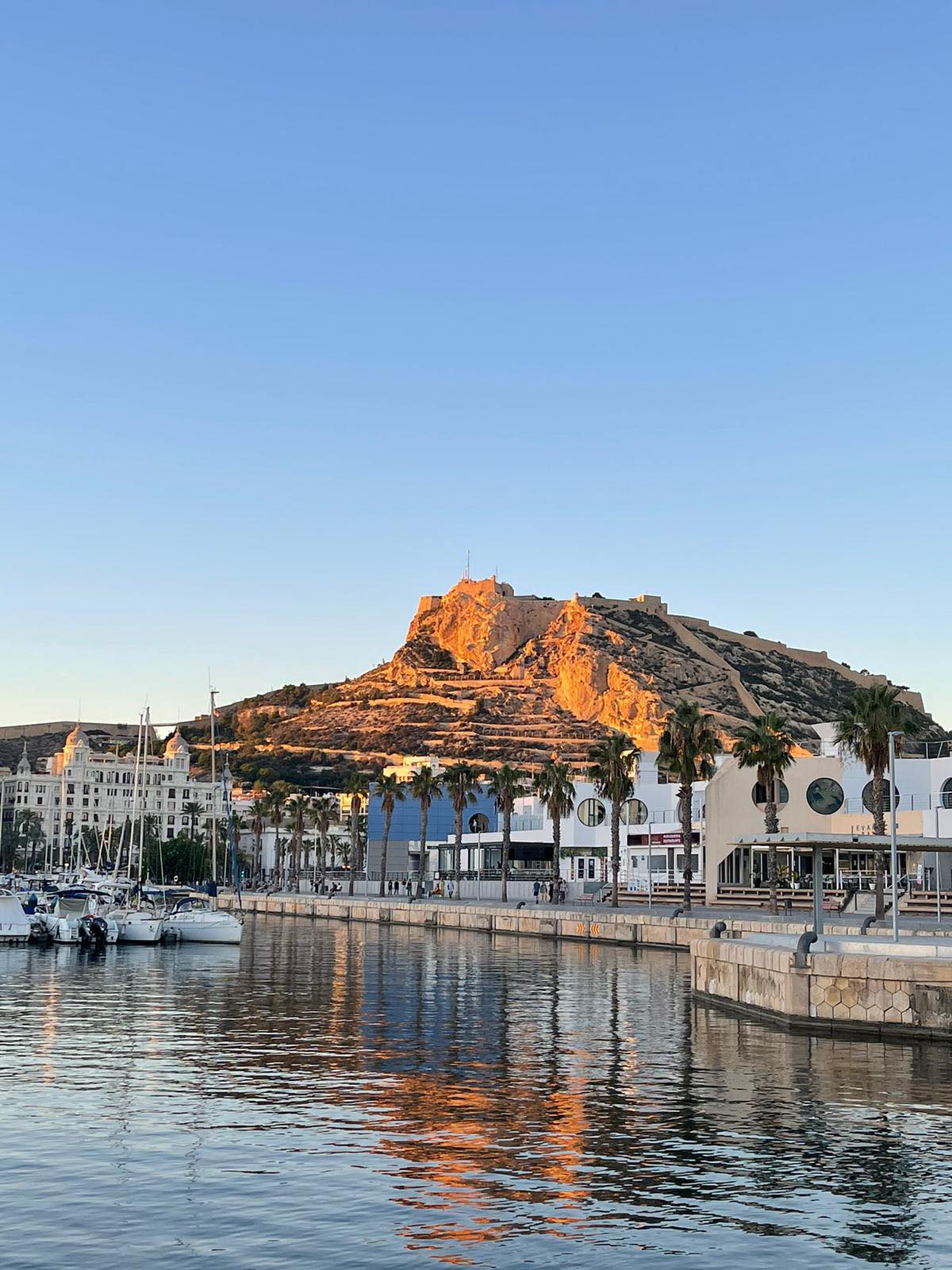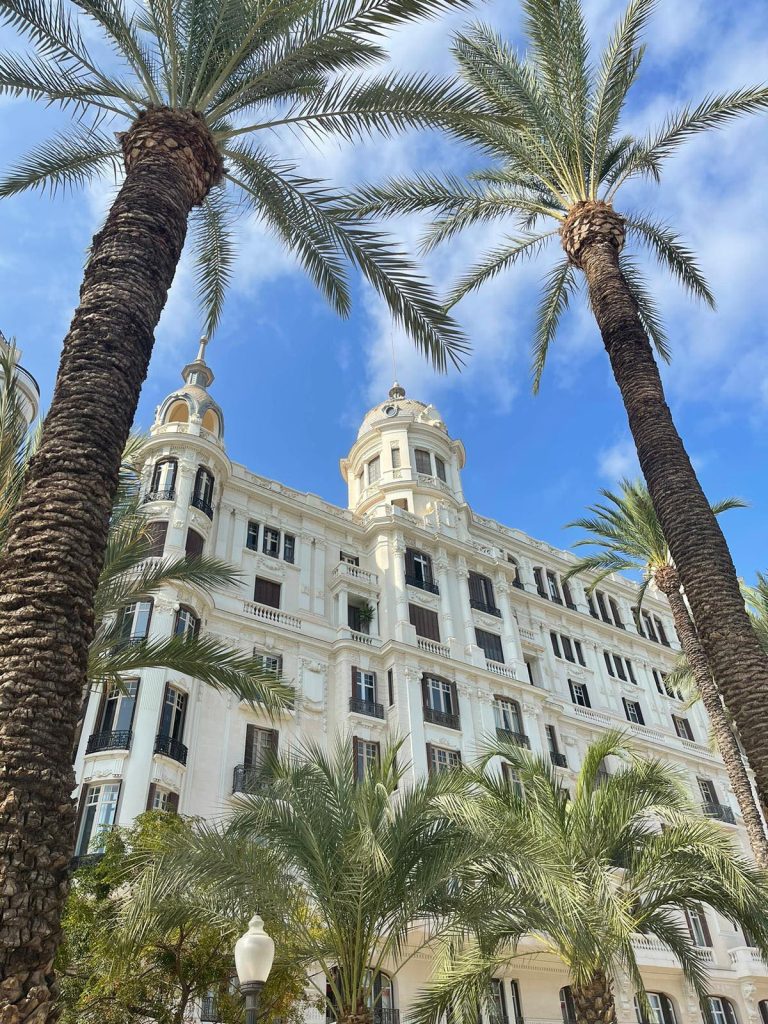“How beautiful it is here!” – first thoughts after arrival in Spain

Palina Salei, student of English Philology // Erasmus+ Studies in Spain, University of Alicante
My first impressions
When I first arrived in Spain, I couldn’t believe my eyes. “How beautiful it is here!” – was my first thought. And, of course, I was under a huge impression: mountains, sun, palm trees, sea – a holiday resort, in a word🌴. However, not everything is so simple in this world, and I will share what I encountered during my first days in Spain.
Compared to past exchange experiences, this time I was sent a date and time in advance when I would be expected at the student office to sign documents and an orientation walk around the campus. True, the university here is built in the American Manner where all the buildings are in one place. However, I faced my first annoyance: the meeting date fell on the last orientation day, 8 September, although my exchange officially started on 1 September, and this affected the signing of documents. At first, it was pointed out to me that I had “arrived” on the 8th, but after consulting with our university, I asked for the actual date of arrival to be put in.
Tip: ask both universities all the nuances, as the systems and procedures are different everywhere, and the difference in the dates specified in the exchange contract and the actual stay of more than 5 days leads to a change in the amount of the grant (reflected in 20%, which is paid after the submission of all documents after the exchange).
On campus
I really liked the campus: big and beautiful buildings, lots of trees and flowers, fountains, ponds and even the local ducks that live on this particular campus. It all looks like a snippet from a film, but the picture got a little blurry when I got to my classes. Depending on the building, the state of the classrooms varies a lot: somewhere everything is quite old, somewhere as simple as possible. What I was used to in Kaunas, especially in the building on Putvinskio g. 23 was very different here. And even if it is not the most important thing, it surprised me a lot in the first days.
Accommodation
Speaking about accommodation in Alicante, I rent a room in a shared flat, which is located in the very canter of the historical city, within walking distance to all the sights and the sea. And surprisingly, it is cheaper to rent a good room here than in Lithuania. I arranged accommodation back in April, as this is a holiday town and it would have been possible to find a room later, but not in this area and not for such a nice price. You can look for a room on Spotahome or on Facebook (there are numerous groups with accommodation, just search for your town/city). I found my place on Facebook.
Tip 1: Look for accommodation as early as possible to avoid overpaying later, as the best accommodation is booked at the earliest.
Tip 2: Be careful of scammers, as there are especially many of them on Facebook. They ask for a deposit for the first or last month and then don’t text you again. In my case, I made a deposit, but it was 100 euros (not for a full month), as a guarantee to me and the landlord that I will come and rent a room from him. P.S. If anyone needs a contact, write and I will be happy to share😊
Settling into a new city
After moving in and getting to know my neighbors, I learned a lot of useful tips that saved me a lot of time and finances. For example, until the end of this year, in Alicante free travel for all tourists on trams and some buses (to the university and the airport) and the card can be obtained by a citizen of any country, having previously filled out a questionnaire on the website and signed up for appointment.
You can also get a lot of discounts with an ESN card, even on flights with Ryanair (10% of the price and 20-kilogram luggage for free), but you need to book 28 days before the trip and from 1 September to 28 May. So, it is useful to get it right after your arrival.
Tip: chat with your neighbors or local students and they will share their experiences.













